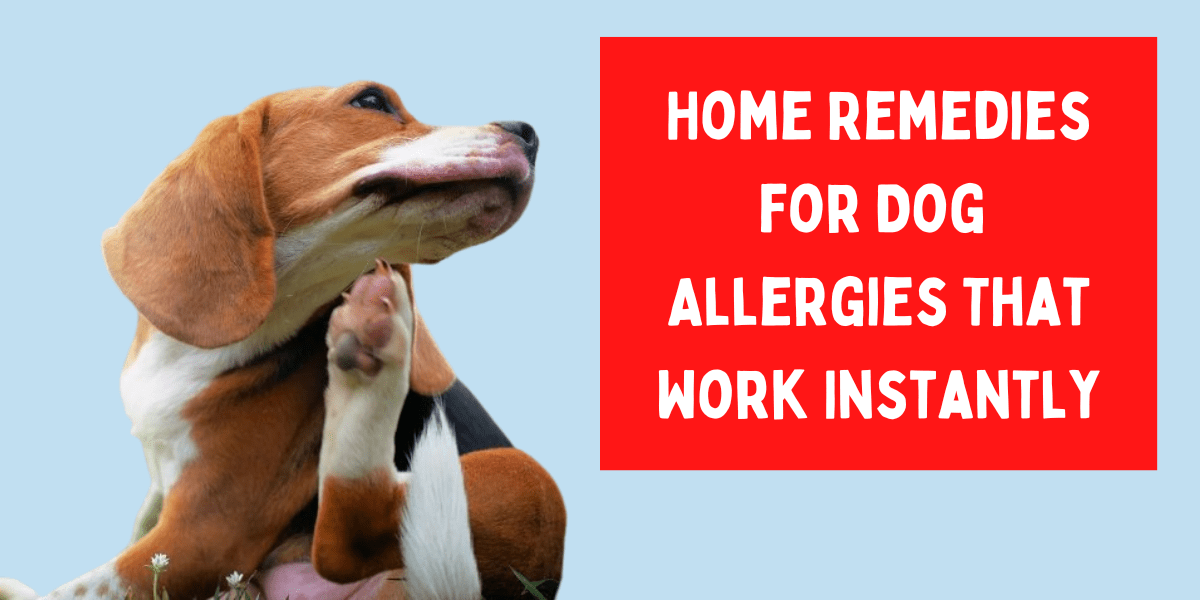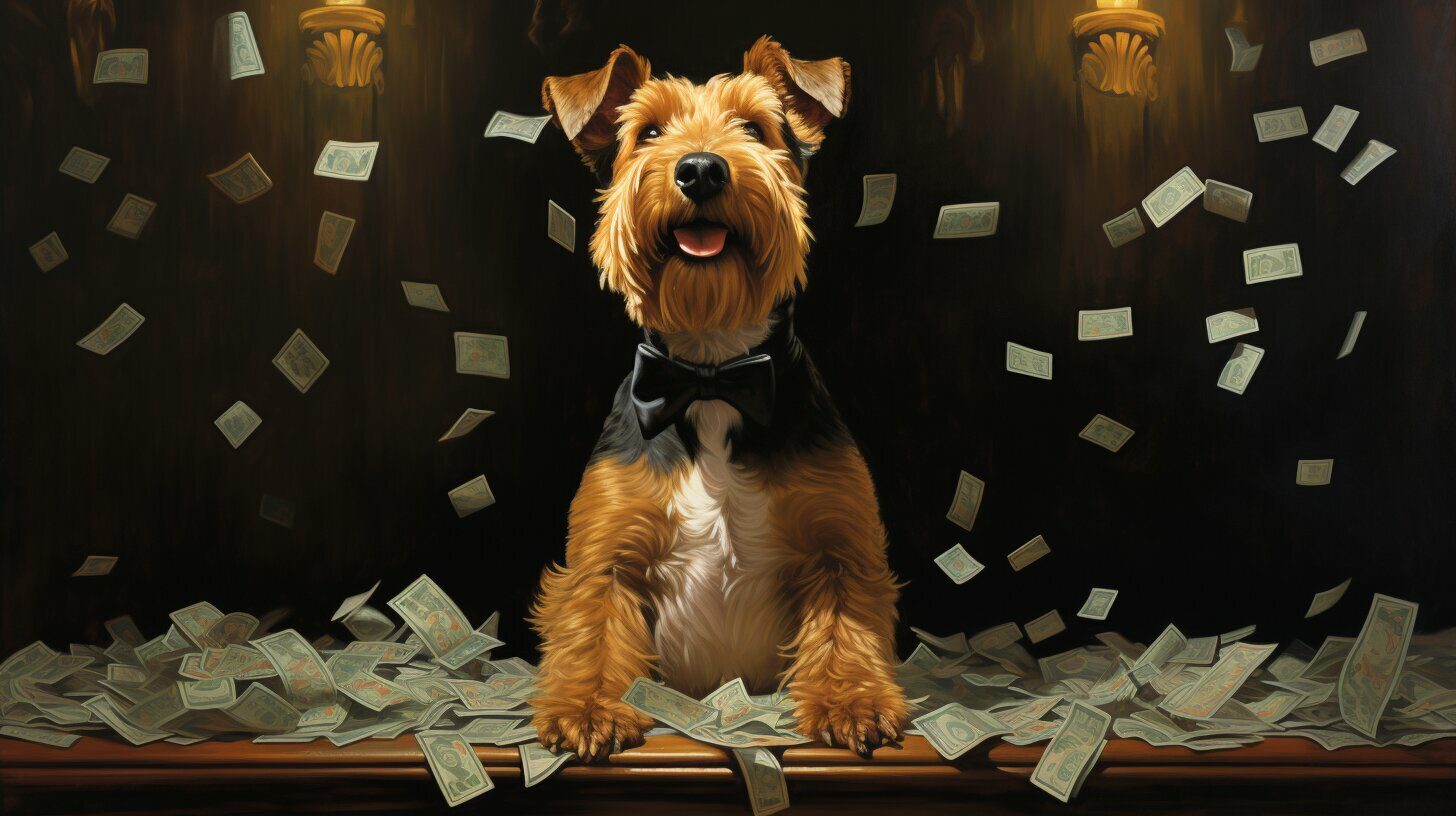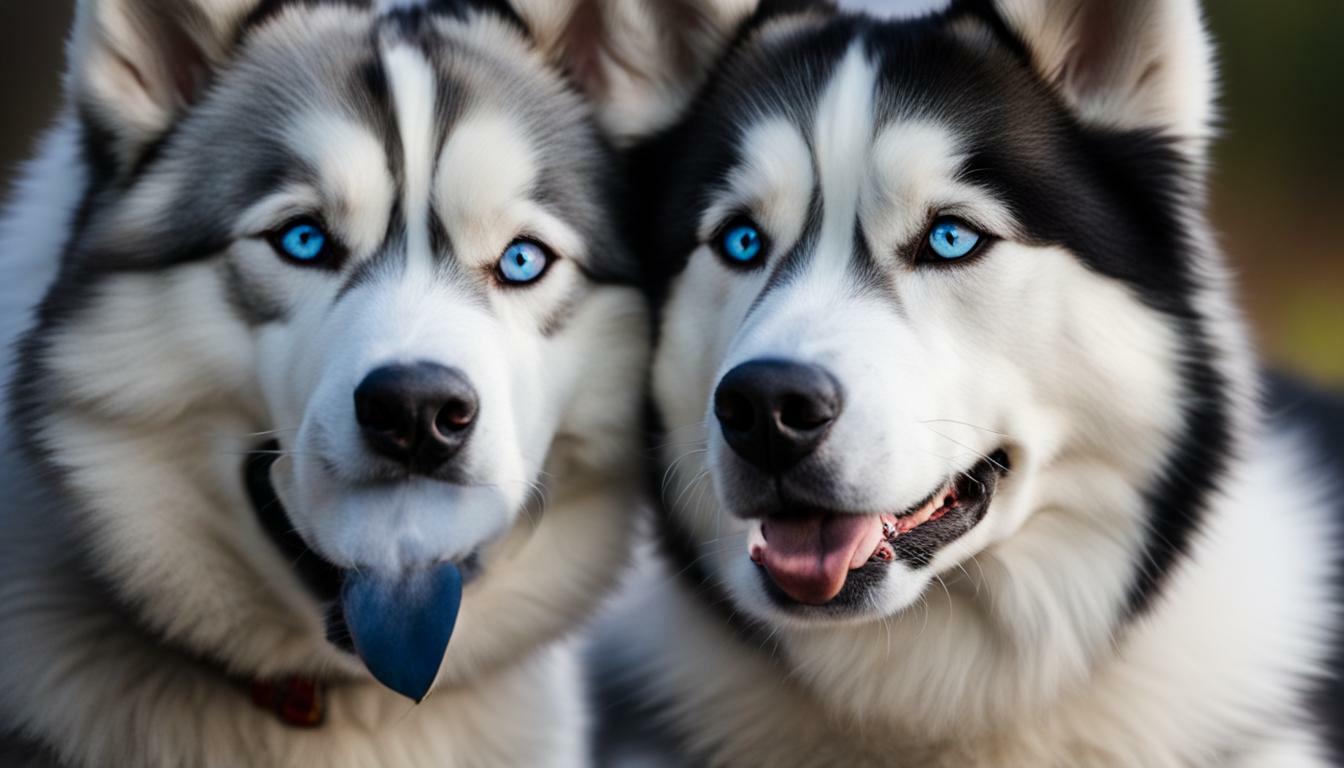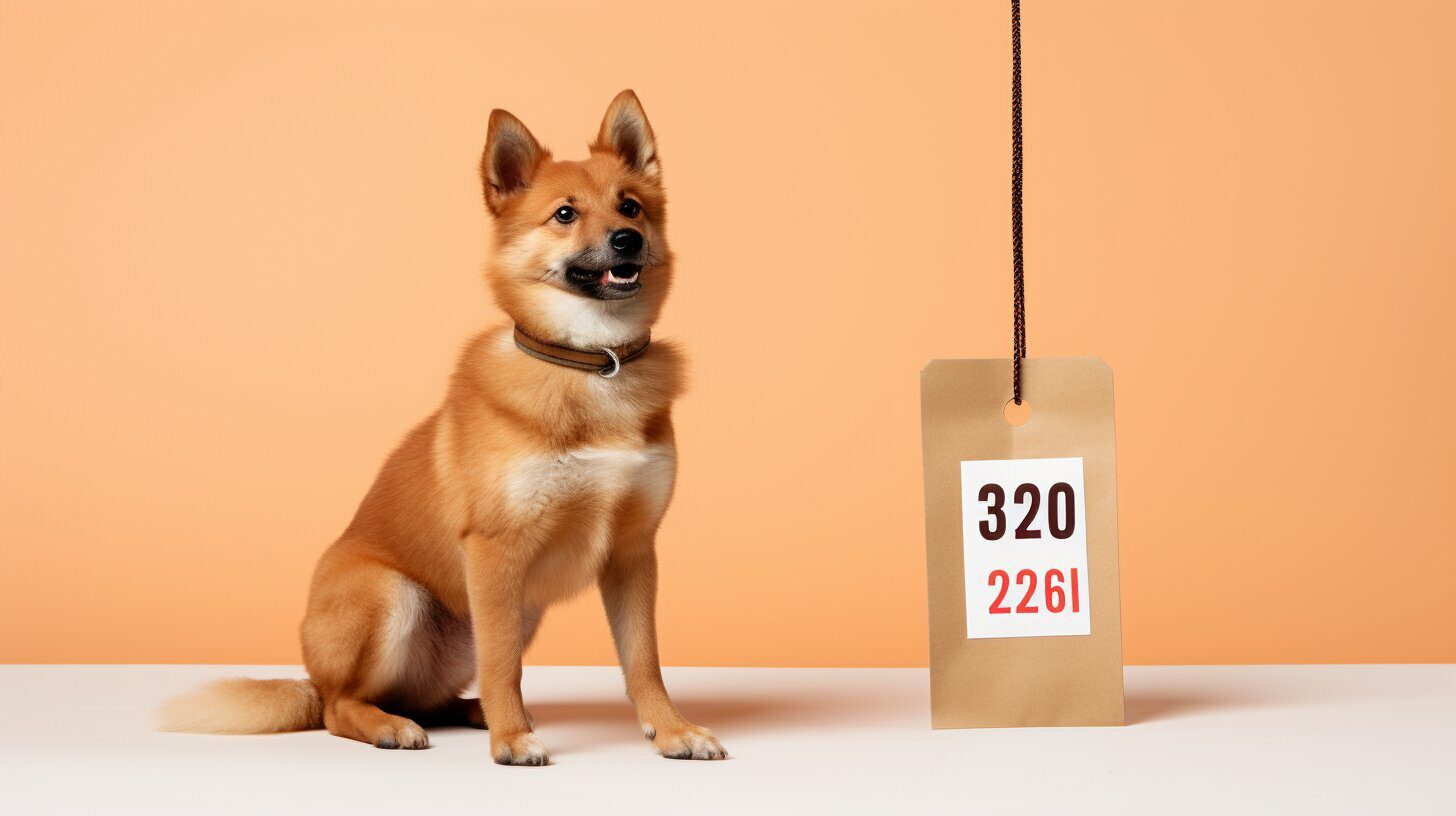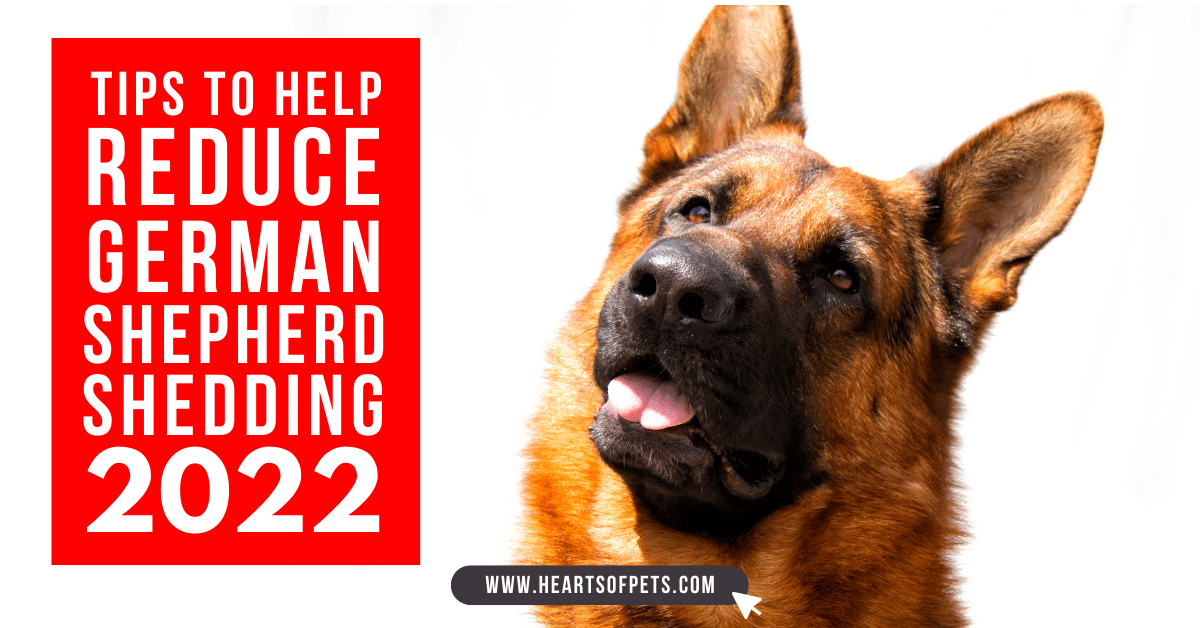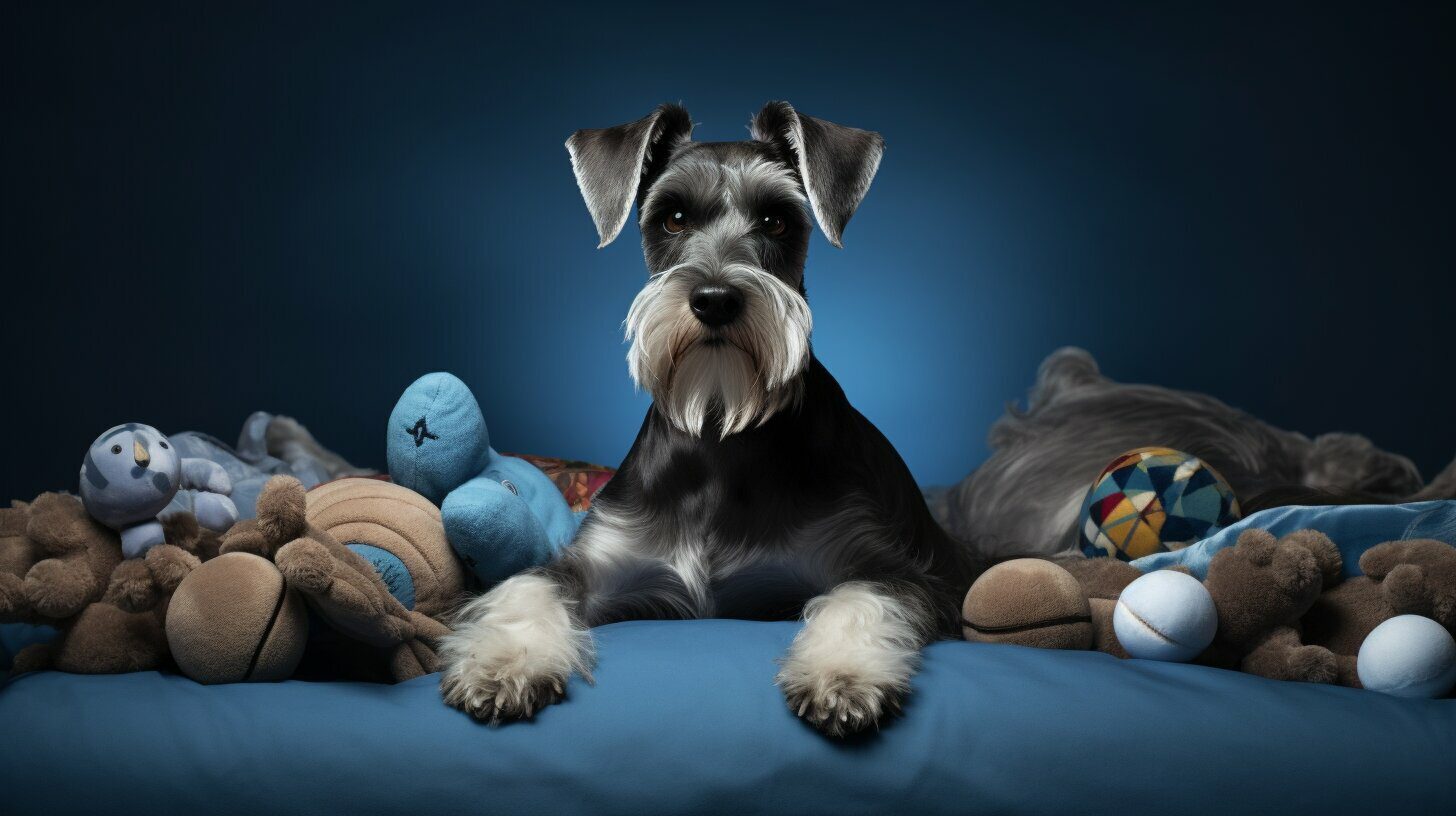
Are you looking for a small dog breed that is not only hypoallergenic but also incredibly intelligent? Look no further than the Miniature Schnauzer! This adorable breed originated in Germany in the 19th century and has since won the hearts of dog lovers worldwide.
The Miniature Schnauzer is known for its lovable and friendly temperament, making it the perfect companion and family pet. Whether you’re looking for a new best friend or a furry addition to your household, this breed has it all.
One of the standout features of the Miniature Schnauzer is its hypoallergenic coat, which makes it an ideal choice for individuals with allergies. Say goodbye to constant sneezing and hello to snuggles with your four-legged friend!
Key Takeaways:
- The Miniature Schnauzer is a small dog breed known for its lovable temperament.
- They are hypoallergenic, making them suitable for individuals with allergies.
- Miniature Schnauzers are highly intelligent and make great family pets.
- Originating in Germany, this breed has a rich history and unique traits.
- Regular grooming and veterinary care are essential for their well-being.
Origin and Traits of Miniature Schnauzers
The Miniature Schnauzer is a type of Schnauzer that originated in Germany. They were bred from the smallest specimens of the Standard Schnauzer and other smaller breeds such as the Affenpinscher, Miniature Pinscher, and Poodles. Miniature Schnauzers are known for their spunky and aloof nature, as well as their good guarding tendencies.
Miniature Schnauzers are recognized in four colors internationally: black, pepper and salt, black and silver, and white. With their square-shaped build, they have a height ranging from 12-14 inches and a weight of 10-20 pounds. These small dogs are efficient ratting dogs, making them agile and quick on their feet.
The Zwergschnauzer, as the Miniature Schnauzer is also known, is highly adaptable and known for their intelligence. They are quick learners and make training relatively easy. Their loyal and friendly temperament makes them popular as companion dogs and family pets.
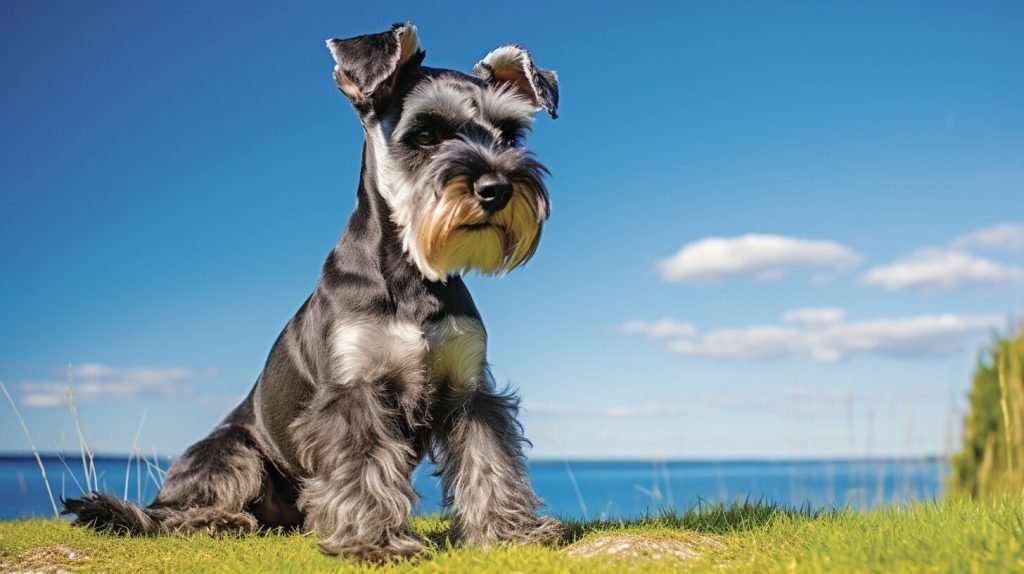
Key Traits of Miniature Schnauzers:
- Originated in Germany, bred from smaller specimens of Standard Schnauzers
- Aloof and spunky nature, with good guarding tendencies
- Recognized internationally in black, pepper and salt, black and silver, and white colors
- Square-shaped build, ranging from 12-14 inches in height and 10-20 pounds in weight
- Efficient ratting dogs, known for their agility and quickness
- Highly adaptable and intelligent, making training relatively easy
- Loyal and friendly temperament, suitable as companion dogs and family pets
Next, we will explore the fascinating history of Miniature Schnauzers, shedding light on their development as working dogs.
History of Miniature Schnauzers
The history of Miniature Schnauzers can be traced back to the late 19th century in Germany. These small working dogs were originally bred to assist on farms, performing tasks such as ratting, herding, and guarding property. Their compact size and intelligence made them ideal for these jobs, and their alertness and bravery earned them a reputation as reliable working companions.
Miniature Schnauzers were developed through selective breeding, aiming to create a smaller version of the Standard Schnauzer while maintaining their working abilities. Over time, breeders successfully achieved the desired size and distinctive appearance of the Miniature Schnauzer, with their bushy eyebrows, wiry coat, and characteristic beard.
Today, the Miniature Schnauzer is known not only for their working abilities but also for their popularity as companion dogs. They continue to showcase their intelligence, loyalty, and friendly nature, making them beloved family pets around the world.
| Working Dogs | Ratting | Herding | Guarding Property |
|---|---|---|---|
| Miniature Schnauzers | ✔ | ✔ | ✔ |
Miniature Schnauzers excel in various tasks, thanks to their working dog heritage. Their ratting abilities make them efficient at catching and eliminating rodents, while their herding instincts enable them to corral and manage livestock. Additionally, their natural guarding instincts make them vigilant protectors of their families and property.
Overall, the history of Miniature Schnauzers is a testament to their versatile nature and adaptability. From their origins as working dogs to their present-day role as beloved companions, Miniature Schnauzers have cemented their place as a treasured breed.
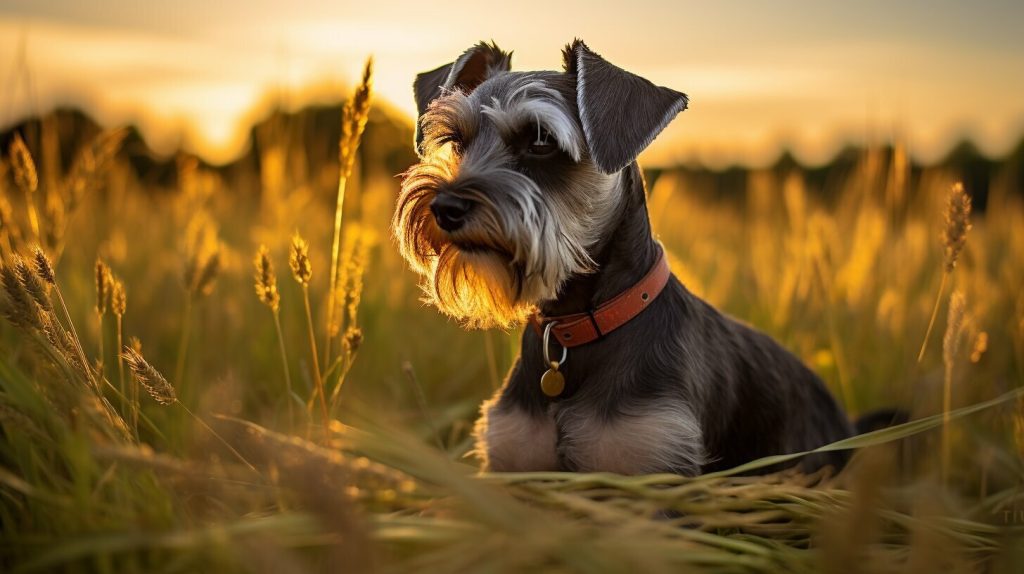
Appearance and Grooming of Miniature Schnauzers
Miniature Schnauzers have a distinct square-shaped build, making them easily recognizable. They have a height of 12-14 inches and a weight of 10-20 pounds, with a sturdy and compact body. Their build reflects their original purpose as efficient ratting dogs. The Miniature Schnauzer’s coat is another notable feature, requiring regular care and grooming to keep them looking their best.
The Miniature Schnauzer’s double coat consists of a soft undercoat and a wiry outer coat. Their coat comes in different colors, including black, pepper and salt, black and silver, and white. When it comes to grooming, owners have two options: hand stripping or clipping. Hand stripping involves plucking the dead hairs from the coat, which helps maintain the wiry texture. Clipping, on the other hand, involves using clippers to trim the coat to a shorter length. Both methods have their advantages and can be discussed with a professional groomer to determine the best approach for your Miniature Schnauzer.
Grooming is not just about maintaining the Miniature Schnauzer’s appearance, but also their overall health. Regular grooming sessions allow you to check for any skin issues, such as rashes or irritations, and examine their ears for signs of infection. Additionally, grooming is an opportunity to trim their nails, brush their teeth, and clean their facial hair to prevent staining or matting. By establishing a regular grooming routine, you can ensure that your Miniature Schnauzer looks and feels their best.
Miniature Schnauzer Coat Colors
| Coat Color | Description |
|---|---|
| Black | Solid black coat from head to tail. |
| Pepper and Salt | A mixture of black and white hairs, giving a peppered appearance. |
| Black and Silver | Solid black coat with silver markings on the eyebrows, muzzle, and legs. |
| White | Pure white coat, sometimes with cream or apricot markings. |
Table: Miniature Schnauzer Coat Colors
Source: American Kennel Club
Temperament and Training of Miniature Schnauzers
Miniature Schnauzers are renowned for their intelligence, loyalty, and trainability. As a proud owner, I can attest to their remarkable temperament and their ability to quickly learn and adapt to new commands and tricks. Their intelligence allows them to excel in various activities, making them great companions and family pets.
One of the standout traits of Miniature Schnauzers is their loyalty. They form strong bonds with their owners and are always eager to please. This loyalty combined with their intelligence makes training a breeze. Whether you’re teaching them basic commands or advanced tricks, their quick grasp of concepts and their desire to please will impress you.
These companion dogs are not only intelligent and loyal, but they also have friendly and outgoing personalities. They get along well with children and other pets, making them a perfect addition to any family. Their sociable nature makes them a great choice for families looking for a loving and playful companion.
Training Tips for Miniature Schnauzers
- Start training early: Begin training your Miniature Schnauzer as soon as you bring them home. This will help establish a strong foundation and ensure they grow up to be well-behaved and obedient.
- Use positive reinforcement: Miniature Schnauzers respond well to positive reinforcement techniques, such as treats, praise, and rewards. Use these motivators to reinforce good behavior and discourage unwanted behaviors.
- Provide mental stimulation: Keeping your Miniature Schnauzer mentally stimulated is crucial to prevent boredom. Engage them in interactive games, puzzles, and training sessions to challenge their intelligence and keep their minds sharp.
- Be consistent: Consistency is key when it comes to training. Establish clear rules and boundaries and enforce them consistently. This will help your Miniature Schnauzer understand what is expected of them and reinforce good behavior.
“A well-trained Miniature Schnauzer is a happy and well-adjusted dog. Their intelligence and trainability make them a joy to train, and their loyalty and affection make them an incredible companion.” – Miniature Schnauzer Owner
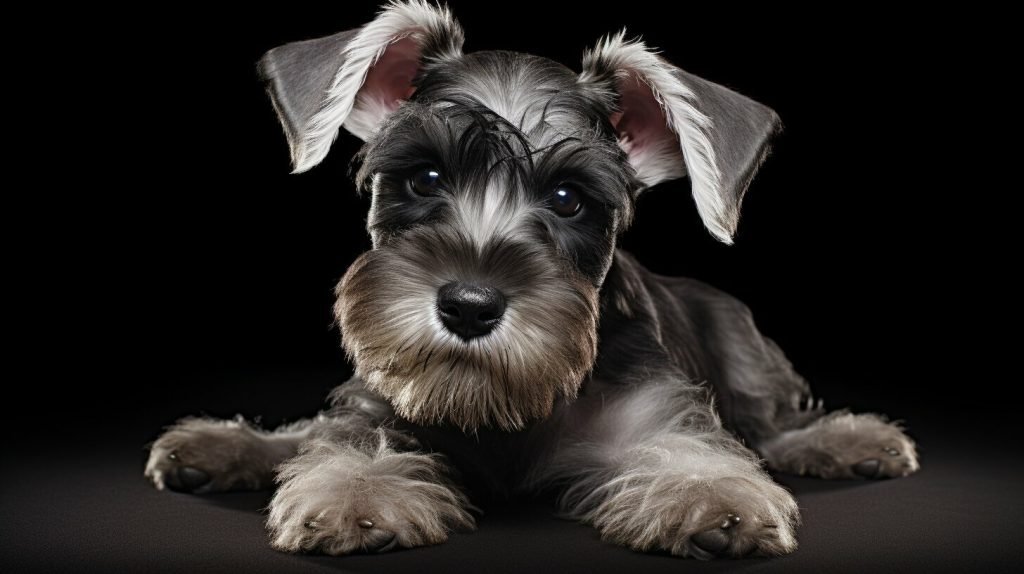
Grooming and Care Recommendations
Along with their wonderful temperament, Miniature Schnauzers require regular grooming to keep their coat healthy and their appearance neat. Their double coat requires regular brushing and occasional trimming to prevent matting and maintain its lustrous texture. Their facial hair also needs to be trimmed regularly to keep their iconic Schnauzer beard and eyebrows in check.
In addition to grooming, Miniature Schnauzers thrive on companionship and require daily exercise to keep them happy and healthy. Regular walks, playtime, and mental stimulation activities are essential to prevent boredom and ensure their overall well-being.
As a responsible owner, it’s crucial to prioritize their health and well-being. Regular veterinary check-ups, a balanced diet approved by professionals, and attention to their specific needs will help keep your Miniature Schnauzer in optimal health and ensure many happy years together.
| Traits | Training Tips |
|---|---|
| Intelligent | Use positive reinforcement |
| Loyal | Start training early |
| Friendly | Provide mental stimulation |
| Easy to train | Be consistent |
| Companion dogs | |
| Family pet |
Health Issues in Miniature Schnauzers
Miniature Schnauzers, like any breed, are prone to certain health issues that owners should be aware of. Regular veterinary check-ups and proper care can help minimize the risk of these conditions and ensure the well-being of your beloved pet.
Cataracts: Miniature Schnauzers can develop cataracts, which are characterized by clouding of the lens in the eye. This can lead to vision impairment or even blindness. Regular eye examinations by a veterinarian can help detect and manage cataracts early on.
High Cholesterol (Hyperlipidemia): Some Miniature Schnauzers may have a genetic predisposition to high cholesterol levels. This can lead to health problems such as pancreatitis and liver disease. A balanced diet and regular exercise can help maintain healthy cholesterol levels in your pet.
Pancreatitis: Miniature Schnauzers are prone to pancreatitis, which is inflammation of the pancreas. Symptoms include vomiting, abdominal pain, and loss of appetite. A low-fat diet and avoiding fatty foods can help prevent pancreatitis in your dog.
Liver Shunts: Liver shunts are abnormal blood vessels that divert blood flow away from the liver. This can lead to liver dysfunction and other health issues. Surgical intervention may be required to correct liver shunts in Miniature Schnauzers.
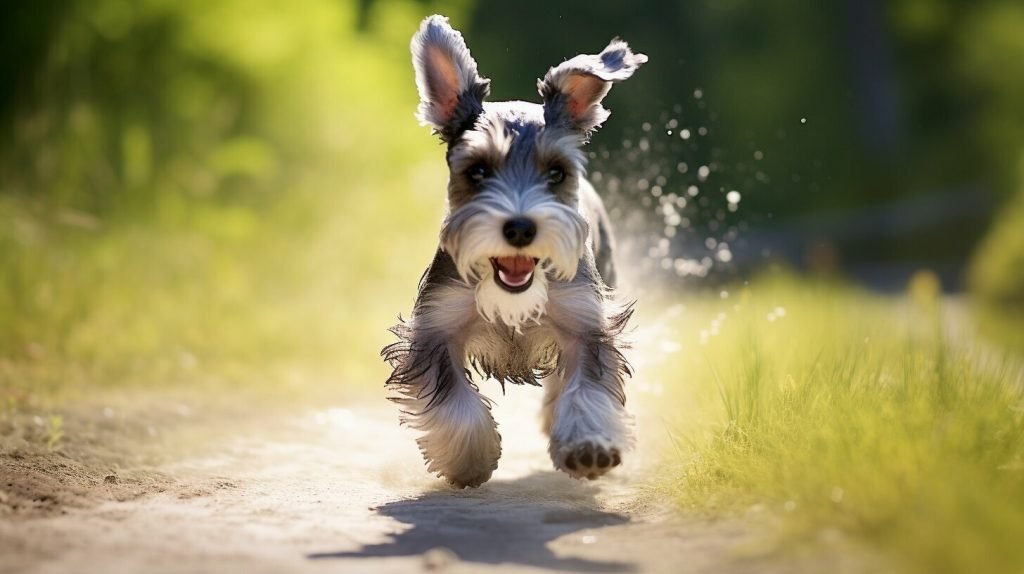
Health Issues in Miniature Schnauzers
| Health Issue | Symptoms | Treatment |
|---|---|---|
| Cataracts | Vision impairment, cloudiness in the eye | Regular eye examinations, possible surgery |
| High Cholesterol | Elevated cholesterol levels, potential for pancreatitis and liver disease | Low-fat diet, exercise, medication if necessary |
| Pancreatitis | Vomiting, abdominal pain, loss of appetite | Low-fat diet, avoiding fatty foods, medication if necessary |
| Liver Shunts | Liver dysfunction, other health issues | Surgical intervention |
Feeding and Care for Miniature Schnauzers
Proper feeding and care are essential for the health and well-being of Miniature Schnauzers. These intelligent and lovable dogs require a balanced diet, regular grooming, and plenty of exercise to thrive. By providing them with the right care, you can ensure that your Miniature Schnauzer remains happy and healthy for years to come.
Feeding
When it comes to feeding your Miniature Schnauzer, it’s important to provide them with a well-balanced diet. A high-quality dog food that is approved by the Association of American Feed Control Officials (AAFCO) is recommended. Look for a food that is specifically formulated for small breeds to meet their nutritional needs. It’s also important to monitor their weight and adjust their portion sizes accordingly to prevent obesity.
In addition to their regular meals, you can also provide your Miniature Schnauzer with healthy treats as a reward for good behavior or during training sessions. Just be sure to choose treats that are appropriate for their size and avoid overfeeding to maintain a healthy weight.
Grooming
Miniature Schnauzers have a double coat that requires regular grooming to keep it in good condition. Their wiry outer coat and soft undercoat should be brushed at least once a week to prevent matting and remove loose fur. Additionally, their facial hair should be regularly trimmed to keep their eyes clear and prevent irritation. If you’re not comfortable grooming your Miniature Schnauzer at home, you can also take them to a professional groomer for regular maintenance and styling.
In addition to brushing, regular bathing is important to keep your Miniature Schnauzer clean and fresh. Aim to bathe them every 4-6 weeks or as needed, using a dog-specific shampoo that is gentle on their skin and coat. Don’t forget to clean their ears regularly and trim their nails to avoid discomfort and potential health issues.
Exercise
Miniature Schnauzers are an active breed and require regular exercise to keep them physically and mentally stimulated. Daily walks, playtime, and interactive toys are all great ways to provide them with the exercise they need. They also enjoy participating in activities such as agility trials and obedience training, which can help channel their intelligence and energy in a positive way.
It’s important to note that Miniature Schnauzers are adaptable and can do well in both urban and rural environments, as long as they have access to regular exercise. Whether you have a backyard or live in an apartment, make sure to provide them with enough opportunities to run, play, and explore.

By following these feeding and care guidelines, you can ensure that your Miniature Schnauzer remains healthy, happy, and a beloved member of your family. Remember, they thrive on love, attention, and a well-balanced lifestyle.
Conclusion
In conclusion, the Miniature Schnauzer is truly a lovable and intelligent breed. They make wonderful companions, thanks to their friendly and loyal temperament. Not only are they great for individuals and families, but they are also hypoallergenic, making them a suitable choice for those with allergies.
Grooming is an important aspect of caring for a Miniature Schnauzer. Regular brushing and coat maintenance will keep their fur healthy and looking neat. Additionally, regular veterinary care is crucial to ensure their overall health and well-being.
With their intelligence and trainability, Miniature Schnauzers excel in various activities such as obedience, agility trials, and tracking. They are not just adorable pets, but also versatile companions.
By providing them with a balanced diet, regular exercise, and lots of love, a Miniature Schnauzer can bring joy and happiness to any household. Consider adopting one of these wonderful dogs today and experience the love and companionship they can offer.
FAQ
Are Miniature Schnauzers hypoallergenic?
Yes, Miniature Schnauzers are hypoallergenic, making them a suitable choice for individuals with allergies.
What are the recognized colors for Miniature Schnauzers?
Miniature Schnauzers are recognized in four colors internationally: black, pepper and salt, black and silver, and white.
What is the origin of Miniature Schnauzers?
Miniature Schnauzers originated in Germany in the 19th century and were bred from the smallest specimens of the Standard Schnauzer and other smaller breeds such as the Affenpinscher, Miniature Pinscher, and Poodles.
What is the typical size and weight of a Miniature Schnauzer?
Miniature Schnauzers have a height of 12-14 inches and a weight of 10-20 pounds.
Are Miniature Schnauzers good with children and other pets?
Yes, Miniature Schnauzers are usually good with children and other pets.
What activities can Miniature Schnauzers participate in?
Miniature Schnauzers can participate in various activities such as dog agility trials, obedience, showmanship, flyball, and tracking.
What health issues are Miniature Schnauzers prone to?
Miniature Schnauzers are prone to health issues such as cataracts, high cholesterol (hyperlipidemia), pancreatitis, and liver shunts.
How should I feed and care for my Miniature Schnauzer?
Miniature Schnauzers should be fed a well-balanced diet approved by the Association of American Feed Control Officials. Regular grooming, exercise, and veterinary care are also essential for their well-being.

